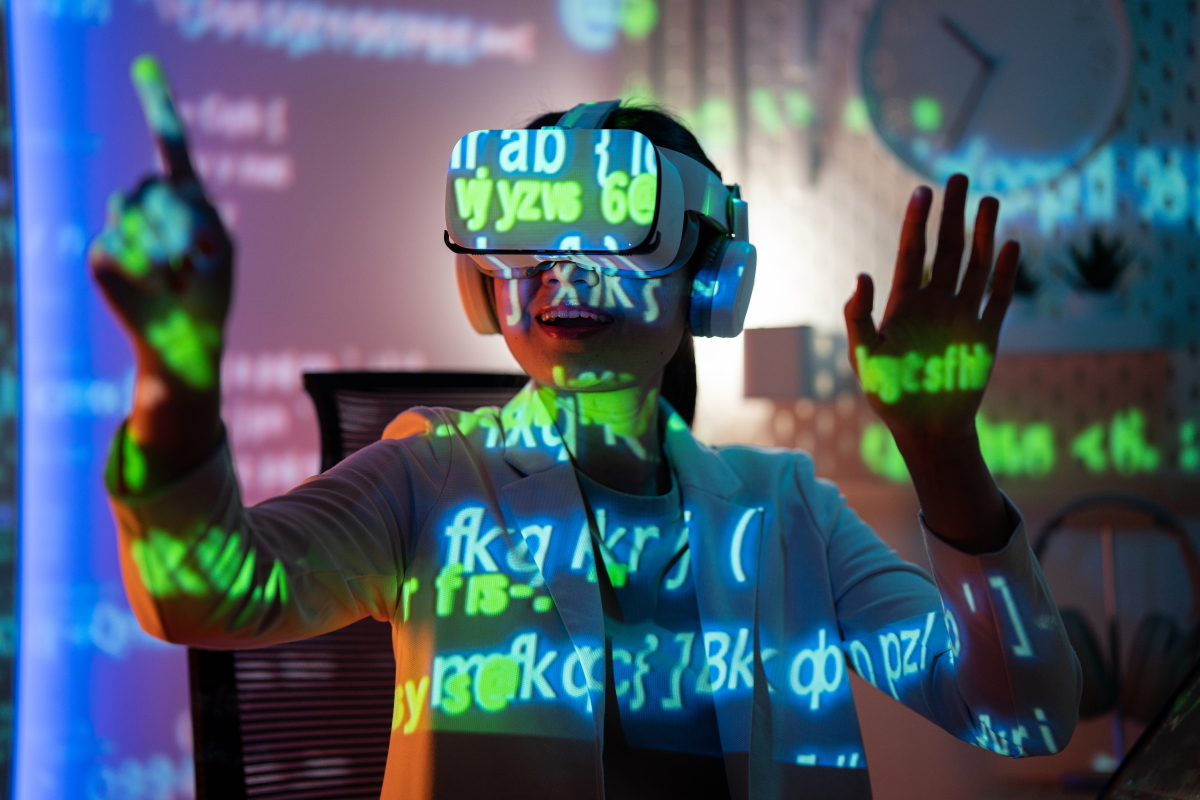Leveraging the metaverse for B2B companies

Benoit Soucaret at Merkle Experience & Commerce describes the potential that the metaverse has for business-to-business brands
The metaverse is not just a new form of immersive experience. It has the potential to completely reshape the way we communicate and build relationships, both personally and professionally.
Brands like Louis Vuitton, Marriott, and JP Morgan are already making waves and showing what could be possible. Already we can see the metaverse is more than a game, a website, an application, or a platform – it’s an interface through which we can experience a new type of reality, with its own rules and its own economy.
While prominent B2C businesses are making headlines, there is also a chance for B2B brands to participate, build a community and interact in the digital world.
Community and interaction in a digital world
The metaverse is centred around the concept of building richer digital interactions, which results in stronger online communities. Brands that might be limited to their physical spaces or restricted by the constraints of expensive business travel and trade exhibits can use the metaverse to engage with corporate decision-makers in a digital world.
This reduces costs while increasing access to product specialists on a more continuous basis, allowing marketers to be more opportunistic in terms of campaign timing and business bursts.
The operational cost-effective efficiencies of the metaverse are worth considering. Hybrid work has now become a standard in many businesses, with 84% of workers planning to continue with this model of work. This digital platform stands as an intriguing alternative to team cooperation, particularly in a mixed work environment.
Establishing a virtual footprint in the metaverse may save money on office space and supplies, allowing employees from all over the world to communicate in real time. Its virtual reality features create an immersive experience that changes the way remote teams can collaborate beyond simple, and now tired, video-calls.
There’s also not enough conversation on the metaverse’s potential to foster sustainability. The discourse seems to focus solely on green energy and responsible platforms for NFTs, but this digital space can also fuel social sustainability.
The metaverse can become a place for deep immersion that fuels empathy, an alternative space to meet remotely and enhance human collaboration, and to use it as a huge collective whiteboard for innovation and experimentation.
Physical challenges of a digital world
To be on the cutting edge of technology also means to be comfortable with its challenges. Today, delivering a metaverse experience requires technological expertise and extensive costs.
Although firms are rapidly joining the movement to create metaverse solutions at more accessible prices, the steep investment may limit widespread adoption.
Beyond monetary restraints, it’s also worth considering safety and security barriers brands may face in the metaverse. Unlike traditional digital channels, where brand standards may be enforced by strategies such as blacklists and diligent brand monitoring, the metaverse is now mainly reliant on user compliance and careful brand execution.
Most businesses have chosen to participate in highly managed and monitored virtual experiences, minimising the risk of problematic involvement of controversies. Until the metaverse evolves further however, relinquishing control is something organisations must be willing to do to fully explore this platform today.
B(e ready) 2 B(e ahead)
Ultimately, any ground-breaking digital development takes time to evolve. Most brands active in the metaverse have been tempted by the possibilities, rather than an immediate pay-off.
In the short-term, business leaders must keep an open mind to this new virtual reality platform. All brands should learn the lessons already proven by metaverse implementation, incorporating tests on digital experiences and improvements could fit into a virtual experience. For example, are landing zones engaging and dynamic on all devices? Could a virtual experience be created using real-time bidding (RTBs)?
Long-term, brands must consider investing in the metaverse and intellectual property (IP). The metaverse, or a least Web3.0, is here to stay and although there might be more tangible assets to acquire in today’s economy, digital ecosystems will continue expanding across industries.
However, any metaverse technological advances happening should set out to improve experiences and be carefully thought through to avoid potentially detrimental effects on fitness and physical social interactions.
The metaverse will be the foundation for the next evolutionary step in the internet, Web3.0, driving the transition from a 2D to 3D digital world. With its multi-sensorial nature, the metaverse provides a new set of challenges and opportunities for retailers to engage with their customers.
Getting a stake in the game early on could be a long-term investment that pays off when competitors are still ‘playing catch-up’.
Benoit Soucaret is CXO at Merkle Experience & Commerce, UK
Main image courtesy of iStockPhoto,com

Business Reporter Team
Most Viewed
Winston House, 3rd Floor, Units 306-309, 2-4 Dollis Park, London, N3 1HF
23-29 Hendon Lane, London, N3 1RT
020 8349 4363
© 2024, Lyonsdown Limited. Business Reporter® is a registered trademark of Lyonsdown Ltd. VAT registration number: 830519543





